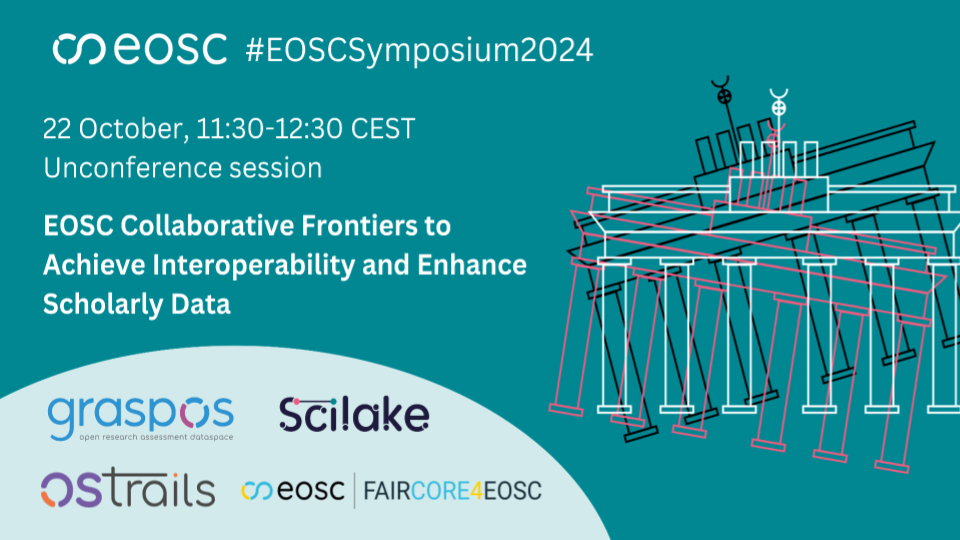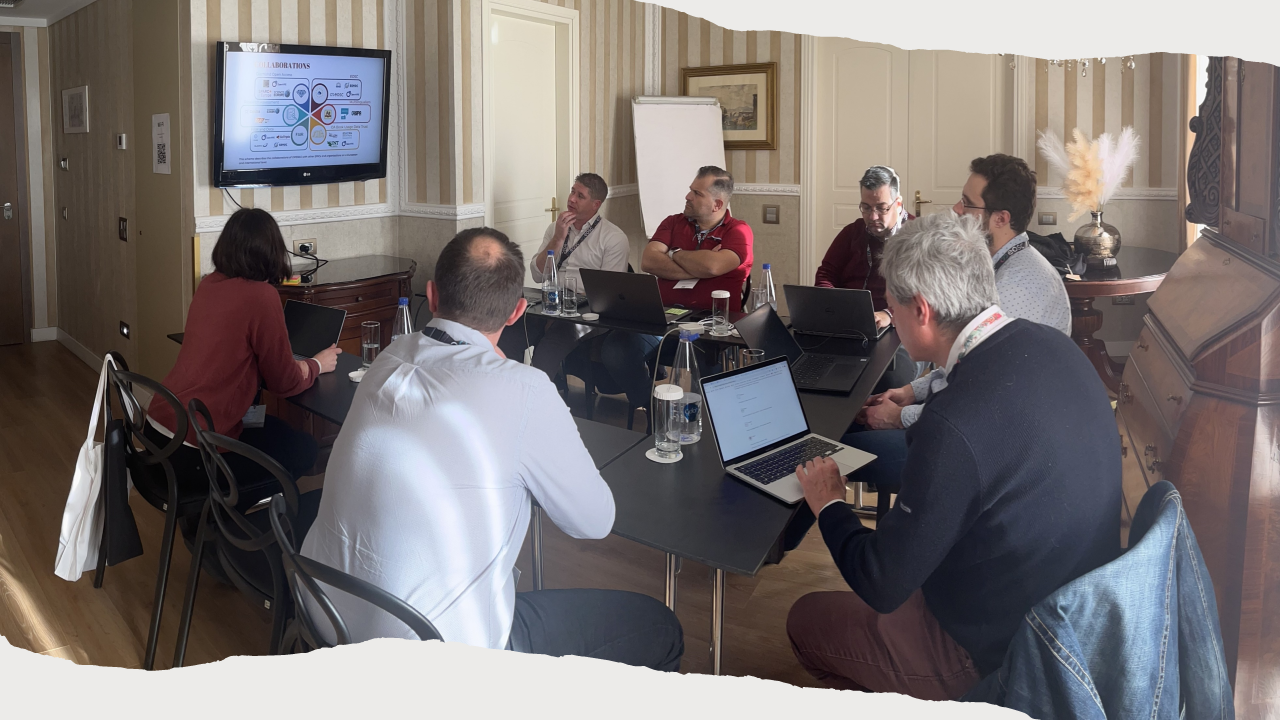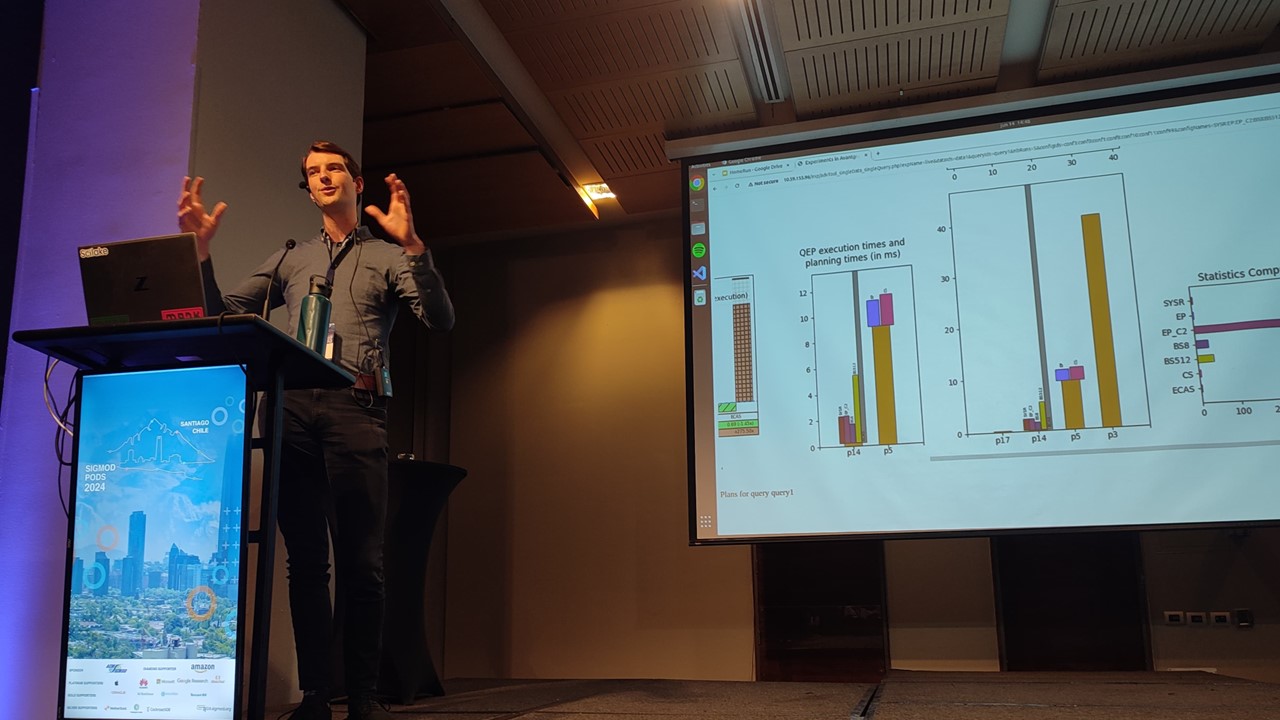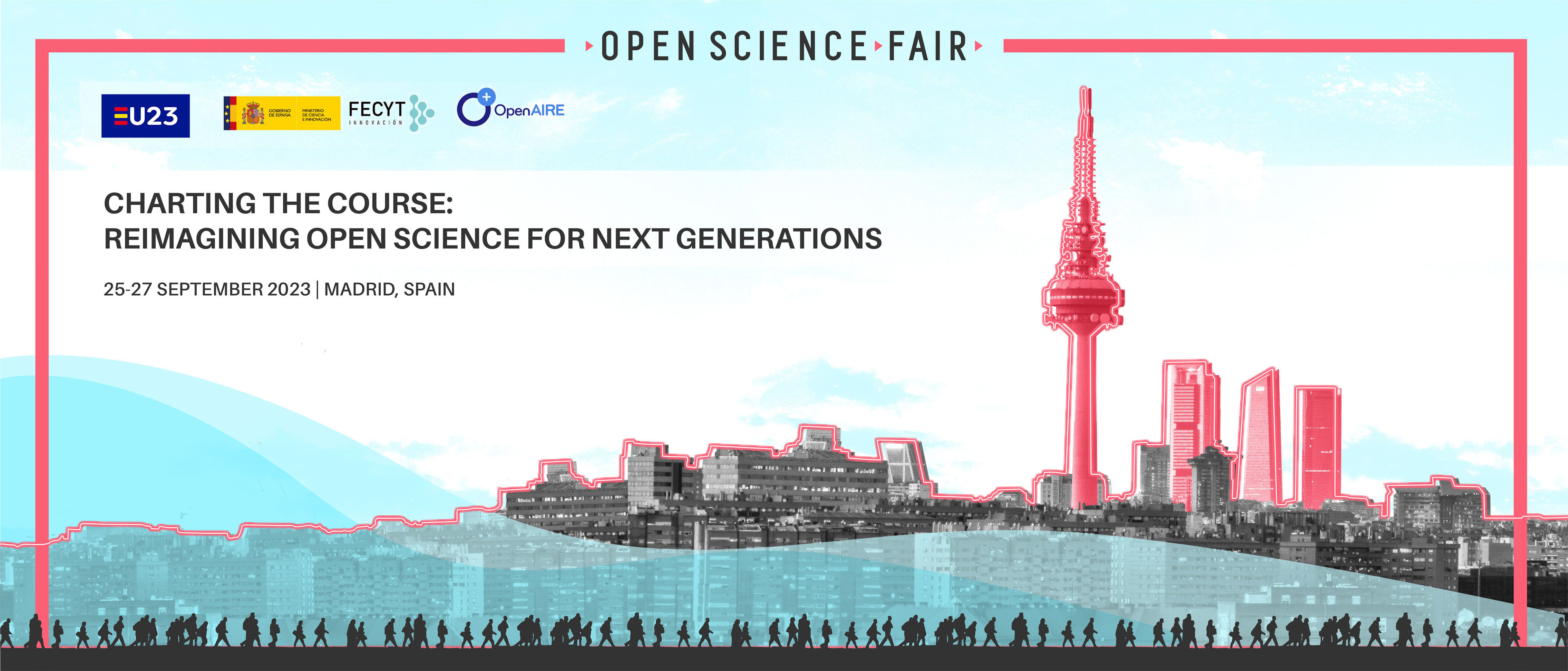EOSC projects enhancing scholarly data interoperability
EOSC projects enhancing scholarly data interoperability: a joint session at the EOSC Symposium 2024
The European Open Science Cloud (EOSC) Symposium 2024 will take place in Berlin from October 21 to 23. This event will bring together key stakeholders including policymakers, funders, representatives from research institutions, communities, and Infrastructures actively involved in the EOSC ecosystem.
Complementing the main program, the symposium will host six community-voted unconference sessions. Among these, a collaborative workshop titled "EOSC Collaborative Frontiers to Achieve Interoperability and Enhance Scholarly Data" is organised by EOSC projects SciLake, GraspOS, OSTrails, and FAIRCORE4EOSC. This session aims to refine the framework to better serve the EOSC community and advance scholarly data interoperability.

What's on the Agenda?
The session, "EOSC Collaborative Frontiers to Achieve Interoperability and Enhance Scholarly Data," will run from 11:30 AM to 12:30 PM. It will spotlight the Scientific Knowledge Graph - Interoperability Framework (SKG-IF), a model developed by the Research Data Alliance (RDA) to manage, connect, and share scholarly data. Representatives from research communities testing the framework will share their insights on its applications for data and metadata management, FAIRness, research assessment, and research discovery.
Attendees can look forward to insightful presentations from experts in the field:
- Thanasis Vergoulis, Athena Research Center: progress and challenges in onboarding the SKG-IF within the EOSC.
- Elli Papadopoulou, Athena Research Center: steps towards achieving FAIRness, interconnectivity, and machine actionability across all phases of the research lifecycle.
- Matt Buys, DataCite: insights from the network of repository managers.
- Andrea Mannocci, CNR: perspectives on research assessment.
The session will conclude with a discussion on the next steps for EOSC, moderated by Giulia Malaguarnera, OpenAIRE Outreach and Engagement officer, in which participants will be invited to engage in the discussion, and to provide their feedback on the ongoing development of the SKG-IF roadmap.
Why Attend?
This session offers valuable insights and opportunities:
- Explore SKG-IF's potential for enhancing research assessment, discovery, data management, and FAIR principles
- Learn about recent SKG-IF improvements within EOSC initiatives
- Collaborate with repository managers, research assessment experts, and research infrastructure members to refine the framework for EOSC
By bringing together diverse perspectives, the session aims to refine the framework, better serve the EOSC community, and push forward the frontiers of scholarly data interoperability.
How to Participate
Interested in joining? Here's what you need to know:
- Watch the promo video for a quick overview
- Check out the full program
- Join us in Berlin or register for the live stream by October 14th



